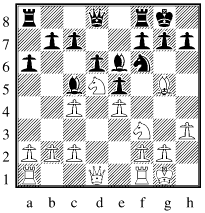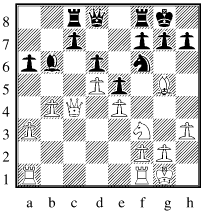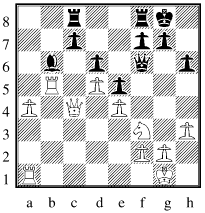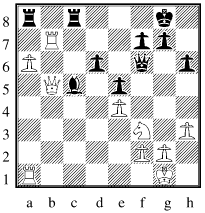
November 2015
Division 1
| ||||||||||||||||||||||||||||||||||||||||||||||||
Division 3
| ||||||||||||||||||||||||||||||||||||||||||||||||
Division 5
|
Division 2
| ||||||||||||||||||||||||||||||||||||||||||||||||
Division 4
|
Division two also gives every indication of being hard fought, with 9 of the 13 matches so far being scored 3 - 2 or closer. Not only have all teams dropped points, but already only two sides are unbeaten. Filling the top position could well be a game of musical chairs, with no clear idea of who will have this seat when the music finally stops. Self-promoted Fenton and last years wooden spoonists Crewe have made slow starts but are clearly no pushovers. They meet on Wednesday.
Division three continues the pattern of mostly close results.Perhaps the most interesting question is how will Kidsgrove get on having lost the services of Ian Jamieson. Newcastle currently prop up this division; indeed apart from their division two teams all their sides lanquish below 50%.
In division 4 Newcastle have been racking up the matches but not the points, so look like contestants for bottom spot. Cheddleton F are one of just 4 sides in the five divisions with a 100% record, alongside division three siblings Cheddletons D and E, and first division Holmes Chapel A. However with just six matches played in total by this quartet, they are not all necessarily bound for dominance. In a show of symmetry there are also four teams with no points between them - Newcastle A, Fenton C and Crewes A and D. They too have only played 6 matches between them so no reason to suppose that they will all remain glued to the feet of their respective divisions.
Meir D, in search of a hat trick of fifth division titles, are early leaders in division five, though they can hardly be accused of fielding teams specifically designed to dominate. Indeed in one sense only four out of eighteen teams fielded so far in the division have been proper division five teams, with all the others having grading totals below 340, which would be the natural upper limit for a division six if one were to exist. I suspect the proportion of true division five sides will increase as the season progresses, though weaker sides will continue to have a significant presence. There seems however no point in creating a division six at the moment, as all it would do is split the current fifth into smaller divisions - I don't believe that there are many if any additional sides waiting in the wings for a weaker division, whilst teams that have fielded division six standard sides don't all have sufficient resources to guarantee continuing to do so if some of their least experienced players are ever unavailable.
The Stafford-Newcastle open cup match has been put back 13 days because of the unavailability of a sufficiently large room on the original match date, and Alasgaer withdrew from the minor cup for the Perry Trophy through a shortage of appropriately graded members. Alsager and Crewe progressed in the major cup at the expense of Meir and Fenton respectively, whilst Newcastle edged past Cheddleton in the Perry on board count.
There are also a number of points on the admin/management side worthy of note. I'll put them in a separate article.
comment on this article
Stuart Green brought up at committee that the AGM rule changes had removed any reference to penalties for fielding an overgraded team. It is equally clear that no new rule can be written before the next AGM and that having no ruling to cope with a situation that has arisen in each of the nine previous seasons is unsatisfactory. Problems not covered by the rules are subject to the disputes procedure, and the committee in effect elected to prejudge all disputes arising from overgraded teams, their ruling being that the lowest board which if replaced by a default would result in a legal side would be declared ineligible, with the ineligible player rule then being applied. This does not seem to have been widely communicated. Nor has it been added as a comment or postscript to the rules on the website so that evrything needed is available in one document. On the other hand the rule passed at the AGM pertaining to F category grades is not in the rules document either. I've previously upset people by describing this as two fingers to the AGM. With the deficiency having been drawn to the attention of the President, Chairman, Secretary and Publicity officer without effect it is difficult to see any inaccuracy in that description.
A sub-committee has been set up to consider ways of improving the league. This has primarily been motivated by the Chairman's wish to re-introduce promotion and relegation, though the cynic in me also wonders whether others see this is as a way of discovering that what we need to do is pass various rules that the AGM has previously rejected. I hope any such cynicism is unfounded.
On the promotion and relegation front the chairman is apparently unaware that many second division teams do not exist as separate entities from the first division offerings of the same club, and so would not be leading candidates for promotion in a world in which different teams require separate squads. He does appear to have considerable knowledge of the Wirral league, but seems to have overlooked a significant difference between that organisation and ours:
Last season the Wirral league consisted of nine clubs fielding a total of 33 teams in it. All bar one of these clubs also played in another league (Chester or Mersey), fielding another 33 teams in those competitions. Whether they regard themselves as Wirral league clubs getting extra matches elsewhere, or Mersey or Chester league clubs getting extra matches through the Wirral league, it is clear that the Wirral league does not need to provide a complete program for its member clubs. In contrast last year 10 North Staffs clubs fielded 36 teams in our league, with three of those clubs between them also placing six teams in other leagues. For many of our members the North Staffs league is the only game in town, and so ideally needs to be able to provide all the midweek chess that they wish.
Ultimately it won't be the committee or a sub-committee that decides the future of our league, but the member clubs throught the AGM. However with only four teams - the first division ones - currently being willing to accept whatever fate throws at them rather than being happy to accept restrictions in their own selections in order that their opponents are equally limited, there is not an immediately obvious groundswell of opinion backing a return to promotion and relegation. Unless that is that people believe that forced promotion is something that will only happen to other clubs or haven't worked out where the dividing line between divisions is likely to fall once clubs can no longer field overlapping squads.
Player lists, and, a little earlier, lists of captains and contacts have now been published. When grading lists were only available in hard copy form and any attempt at written communication had to be made by snail mail it was inevitable that such publication needed to have time lags built in. Now however the August revision of the July grading list is available for all and sundry to examine at the end of August, and even includes F category grades which may be based on as few as 5 games. Equally for most purposes email can be regarded as as good as written communication, and a lot quicker (and possibly more reliable) than Royal Mail. However the secretary cannot publish information he does not have. It should now be possible for player registration and captain and contact information to be relayed to the secretary by mid-September, along with any additional information on ungraded players to enable sensible estimates to be made, so that the whole can be published immediately after the final club AGM at the end of September.
Roger Edwards is determined to stand down as grading officer, and thoroughly entitled to do so. Do contact the high authorities if this is something you fancy taking on. Meanwhile if you have an event that you'd like graded but don't want to bother Roger with, do pass it on to me. I've arranged with the ECF to be a grader and am happy to take on any event that I'm convinced has been conducted in accordance with the regualtions for graded games. However as I don't play nicely I suspect the top brass would prefer to look elsewhere for someone to look after the league events.
comment on this article
1 e4 e5, 2 Nf3 Nc6, 3 Bc4 Bc5, 4 Nc3 Nf6, 5 d3 O-O
6 O-O d6, 7 h3 a6, 8 Bg5 Na5, 9 Nd5 Nxc4, 10 dxc4 Be6

|
| White v Black after 10 Be6 |
11 ... Bxd5, 12 cxd5 b5, 13 a3 Rc8
For a while h6, intending to resolve the tension around the pinned knight has seemed more natural, though black needs to check that he can defend to his taste against the variation:
13... h6, 14 Bh4 g5, 15 Nxg5 hxg5, 16 Bxg5
These piece for two pawn attacks in front of the enemy king can lead to exciting wins or leave the attacker looking very stupid when his attack fails to lead to mate or material gain.
14 b4 Bb6, 15 c4 bxc4, 16 Qxc4

|
| White v Black after 16 Qxc4 |
16 ... a5, 17 bxa5 Bxa5, 18 Rfb1 h6 Black finally puts the question
19 Bxf6 This exchange will be to blacks liking. Assuming white's plan is to push his a-pawn to victory he would be better offering to exchange bishops, or trying to use his to provide extra support for that pawn's advance. Further black now gets his queen out of the way of the rooks.
19 ... Qxf6, 20 Rb5 Bb6
The rook will need to return to a8 at some point, so why not now? The
bishop blocks the advance of the a-pawn, often the first step in trying to win it, whilst Qa4 by white to gang up on the bishop would then be ill-advised:
20... Ra8, 21 Qa4 Bc3 ouch
Passed pawns should be pushed, so here it comes.

|
| White v Black after 21 a4 |
21 a4 Ra8, 22 a5 Bc5, 23 a6 Rfc8, 24 Rb7 c6
25 dxc6 Rxc6, 26 Qb5 Rcc8

|
| White v Black after 26 ... Rcc8 |
27 a7 Bxa7, 28 Qb2 White cannot win the bishop because of
mating variations such as
28 Rbxa7 Rxa7, 29 Rxa7 Rc1+, 30 Kh2 Qf4+
31 g3 Qxf3,
whilst he also has to be wary of Bxf2+
28... Bc5 Black is a pawn up and cannot be blamed for taking the pragmatic view of exchanging into a won ending. However Qf4 would be even stronger, with white faced with losing the e-pawn as a minimum consequence.
29 Rxa8 Rxa8, 30 Rb8+ Rxb8, 31 Qxb8+ Kh7, 32 Qb2 Qf4
33 Qe2 f5, 34 exf5 Qxf5, Black's central pawns are huge, and the spectators gathered like vultures to watch the final acts played out.
35 Kh2 e4, 36 Nd2 d5, 37 Nf1 Bxf2, 38 Ne3 Qf4+
39 Kh1 Qxe3, 40 Qd1 Qe1+, 41 Qxe1 Bxe1, 42 Kg1 d4
43 Kf1 Bg3, 44 h4 d3, 45 h5 e3, 46 Kg1 e2 0-1
Whilst fortunes fluctuated to some extent - in which game don't they? - this has the look of some pretty sensible play. The cometition? The Minor Cup for the Perry Trophy for players graded under 110. It seems unlikely that either player will remain eligible for long. So what was Dominic Taylor's (white) big mistake against Alberto Gissi in the game above? Perhaps it was choosing to play the Giuoco Piano. After all, Alberto is Italian. He was even willing to give us lessons in to how to pronounce Giuoco Piano properly in the pub afterwards.
comment on this article